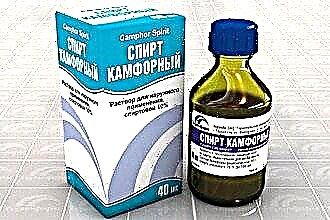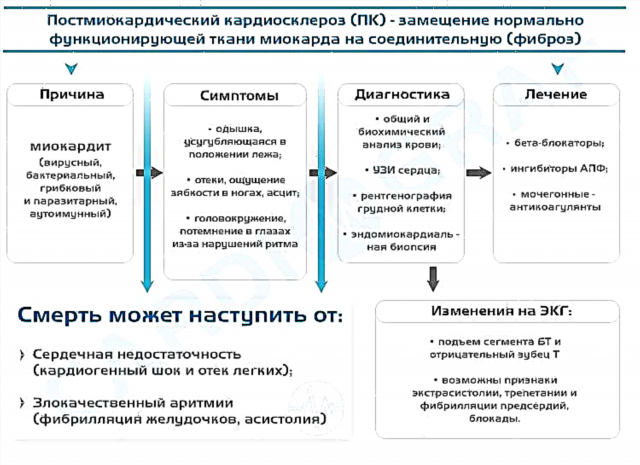 Herpetic infection penetrates into the epithelial tissues of the respiratory organs by airborne droplets or through household contact through household items and children's toys.
Herpetic infection penetrates into the epithelial tissues of the respiratory organs by airborne droplets or through household contact through household items and children's toys.
The herpes virus is able to integrate into the gene apparatus of cells, therefore, it is impossible to completely eliminate pathogens in the body.
In the case of a decrease in general immunity, pathogenic agents are activated, as a result of which serous inflammation and painful vesicles appear on the mucous membranes.
Causes
Often, viral-vesicular disease is diagnosed in children aged 2-3 years with the final depletion of the immunity transmitted by the mother. Reducing the body's resistance increases the risk of infection and the development of pathogenic flora in the mucous membranes of the respiratory tract. Viral herpes manifests itself only when there is a malfunction of the immune system.
A severe course of the disease occurs during the initial contact of the child's body with pathogens, since the immune system has not yet had time to synthesize antibodies that can resist herpes viruses. Relapses of a viral disease can be provoked by:
- avitaminosis;
- mucosal injury;
- hypothermia;
- persistent colds;
- intestinal infections;
- poor nutrition;
- overwork.
Viral-vesicular throat lesions most often occur in children under the age of 7-8 years.
There are 8 main types of herpes viruses that provoke infectious diseases of various severity. A characteristic feature of herpes infection is its latency and manifestation when the immune system malfunctions.
Clinical manifestations
Symptoms of a herpetic infection are similar to the clinical manifestations of herpetic stomatitis, laryngitis, herpangina, etc. However, the treatment of these diseases must be accompanied by the intake of antiviral agents that are resistant to a particular type of virus. Only a specialist can diagnose herpes in children after the patient undergoes an examination and a throat swab for virological analysis.
There are 8 subtypes of herpes viruses that can cause the following infectious diseases in children:
| Herpesvirus type | Caused pathologies |
|---|---|
| Type 1 | labial herpes, herpetic stomatitis |
| Type 2 | vaginal and genital herpes |
| Type 3 | herpes zoster, varicella |
| 4 type | CNS lymphoma, infectious mononucleosis |
| 5 type | inflammation of the salivary glands, infectious mononucleosis, hepatitis |
| 6 type | baby roseola |
| 7 type | chronic fatigue syndrome |
| 8 type | Castelmann's disease, Kaposi's sarcoma |
With damage to the mucous membranes of the oropharynx, patients complain of the formation of small bubbles in the throat, which spontaneously open and cause pain. Typical manifestations of the disease include:
- discomfort when swallowing;
- burning and itching in the throat;
- hypersalivation;
- chin lymphadenitis;
- aphthae on the mucous membranes of the pharynx;
- decreased appetite;
- moodiness and tearfulness;
- hyperemia of the mucous membranes;
- headache;
- soreness of the lymph nodes on palpation.
With age, exacerbations of a viral disease are less and less common, but in the presence of secondary immunodeficiencies, the herpes virus is activated. To reduce the likelihood of relapses of the disease, the passage of preventive immunomodulatory therapy allows.
Baby roseola
In most cases, the first, second and sixth type of herpesvirus is diagnosed in children. Baby roseola can be confused with rubella and other skin diseases, therefore, when the first signs of pathology appear, it is necessary to be examined by a pediatrician.
Herpes type 6 in children affects the immune system, which leads to the development of T-cell lymphotropia. Pathogenic agents penetrate the skin through the bloodstream, which entails the formation of pro-inflammatory cytokines.
 Herpes viruses react with immune factors, resulting in exanthema. Typical manifestations of baby roseola are:
Herpes viruses react with immune factors, resulting in exanthema. Typical manifestations of baby roseola are:
- febrile or hyperpyretic fever;
- maculopapular rash in the abdomen and chest;
- hypertrophy of the mandibular lymph nodes;
- pigmentation and peeling of the skin.
The disease does not require specific treatment in children who are not immunocompromised. In the absence of therapy, the symptoms of pathology disappear on their own within 4-5 days.
To alleviate the patient's condition, with a strong increase in temperature, it is recommended to give antipyretic drugs that prevent denaturation of proteins in the blood.
General recommendations
How to treat vesicular viral infection in children? Before using antiviral drugs, you need to be examined by a doctor. The methods of therapy are determined by the type of herpesvirus, the site of localization of serous inflammation and the age of the patient.
If the patient shows symptoms of herpes infection, limit his contact with the surrounding children. A highly contagious disease is easily transmitted by airborne droplets, therefore it can cause an epidemic among preschool children. Effective non-drug measures that reduce the degree of intoxication of the body include:
- the use of a large amount of liquid - compotes, decoctions, herbal teas, natural juices, fruit drinks, etc.;
- bed rest - being in a ventilated room with a normal level of air humidity;
- eating only a semi-liquid consistency - cereals, soups, broths, mashed potatoes, etc.
Solid food can lead to mucosal injuries and the penetration of herpes viruses not only into soft tissues, but also the nerve fibers of the trigeminal nerve.
A sharp rise in temperature and ulceration of the oropharyngeal mucosa are a clear sign of the development of an infectious disease. To confirm the diagnosis and determine the optimal therapy regimen, you should seek the help of a specialist.
Systemic therapy
What should be the treatment for a vesicular viral infection in the throat? To eliminate the clinical manifestations of pathology and to prevent the development of pathogenic agents, the means of conservative therapy allow. To suppress the activity of herpes viruses, the following are used:
| Drug type | Drug name | Mechanism of action |
|---|---|---|
| antiviral |
| destroy the vast majority of herpes viruses, which leads to recovery |
| antihistamines |
| normalize the outflow of lymph from the affected tissues, which leads to a decrease in swelling |
| anti-inflammatory |
| prevent the production of cyclooxygenase, as a result of which the intensity of serous inflammation of the mucous membranes decreases |
| antipyretic |
| prevent an increase in body temperature, by reducing the risk of dehydration |
| immunostimulating |
| increase the activity of antibodies and immune cells, as a result of which the general immunity is strengthened |
| rehydration |
| replenish the loss of fluid in the body, which contributes to the breakdown of toxic substances in the tissues |
| fellows |
| absorb and remove from the body toxins and metabolites of pathogenic agents |
Eliminate the local symptoms of pathology allow rinsing the oropharynx with aqueous solutions with "Novocain".
Only complex treatment of ENT disease can achieve the desired therapeutic results within 10-14 days. To reduce the risk of recurrence of a viral infection, it is necessary to use not only systemic drugs, but also local therapies that increase the tissue reactivity of the mucous epithelium.
Local therapy
How to quickly eliminate the unpleasant symptoms of herpes in the throat in children? Antiseptic preparations for rinsing, aerosols for extinguishing the oropharynx and ointments for treating foci of serous inflammation can accelerate the healing of aft and erosive points in the mucous membranes. It should be understood that the treatment of children should be carried out under the supervision of an infectious disease specialist. Untimely passage of therapy contributes to the progression of the infection and the development of complications.
Important! It is impossible to put warming compresses on the throat in case of herpesvirus infection, since local heating of the affected tissues will only accelerate the spread of the pathogenic flora.
 Effective local therapies include:
Effective local therapies include:
- anti-inflammatory rinses - Rotokan, Acestin, Rivanol;
- local anesthetics for rinsing - Ultracaine, Grammidin Neo, Cameton;
- disinfecting sprays for extinguishing the oropharynx - Tantum Verde, Yoks-Teva, Givalex;
- antiviral ointments for the treatment of vesicles in the throat - "Herpetad", "Oxolinic ointment", "Riodox ointment".
Medicinal decoctions based on chamomile, sage, thyme and calendula will be no less effective in the treatment of erosive formations in the throat. Regular gargling will restore tissue trophism and promote the regeneration of the mucous epithelium.
Prophylaxis
As already noted, herpes on the throat occurs when the body's reactivity decreases. To prevent the development of a viral disease, it is necessary to make up for the lack of vitamins and minerals in the body. It is they who take part in all biochemical processes and accelerate cellular metabolism, which has a beneficial effect on tissue reactivity.
It is known that the activation of herpes viruses is observed with a lack of ascorbic acid, tocopherol, retinol, pyridoxine and thiamine in the body. To compensate for the deficiency of these substances in the child's body, it is necessary to undergo vitamin therapy twice a year. It is more expedient to use "Alphabet B", "Vitrum Kids", "Multi-Tabs Baby", "Pikovit", etc. as drugs for maintaining general and local immunity.
With a recurrent course of viral-vesicular disease, it is necessary to give adaptogens to children. They stimulate the production of interferon in the body, which destroys disease-causing viruses. The most effective and safe herbal remedies include "Ginseng Tincture", "Levocarnitine", "Eleutherococcus Tincture", etc.



